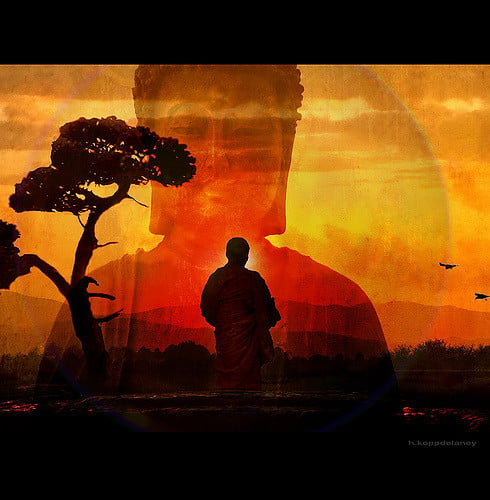
Shunryū Suzuki, was a master of many things, not the least of which were meditation and calligraphy.
His teaching—sometimes simple, sometimes confusing, but always profound—has influenced me greatly. I have also admired the work of other remarkable men and women: the Nobel Peace Prize winning, Thich Nhất Hanh, the Trappist monk, Thomas Merton, and the Buddhist nun, Pema Chödron. In short, I walk in the shade of trees planted by those who came long before me.
The trees planted by Suzuki have borne fruit in ways I could not have expected. None more so than the phrase, “Do not say too late.“ It’s said to have been his only work of calligraphy English which, somehow, makes it all the more important.
It’s a remarkably simple phrase. But, it’s a phrase pregnant with hope, encouragement, and even comfort. As I approach the age of 60, I’ll confess to sometimes feeling like I’m running out of time to do some of the things I thought I would when I was a younger man. We all know there is a clock ticking in our lives, it’s just that the older one gets, the more one becomes aware of its sound.
But, Suzuki’s admonition, spoken gently but firmly, or so I imagine, reminds me that whatever time I have left on this earth, it isn’t too late for me to learn new things, become more compassionate, reconcile with someone I have wounded or who might have wounded me. It isn’t too late for me to explore new places—both within me and without. It isn’t too late for me to write something meaningful—even if it’s just meaningful to a few people. It isn’t too late to craft some clumsy poem that might inspire others.
Some time ago, as I was reflecting on Suzuki’s words, I found myself at my laptop attempting to do just that. Well, I wasn’t trying to write something clumsy, but I was trying to reduce to writing the feeling that was welling up inside me—that it really isn’t too late. So I managed to cobble together what follows:
Do not say, too late
to heal from the deepest
gash within your heart, nor
to wash your anger with the
cool grace of forgiveness,
nor for laughter with an old friend;
Do not say, too late
to know the gentle touch of love,
nor to find the way out of darkness,
or help another find his way
into the light;
Do not say,
too late
to change this world
or at least your small
corner of it,
nor to dance,
or play or sing;
Do not say, too late
to leave disappointment
and fear and pride behind
and to walk in the peace
of letting go;
Do not say, too late
to peer deep within your soul,
tarnished though it may be,
and see yourself
completely and learn to
cherish all that you are
and will become;
Do not say, too late,
too late for hope,
too late for adventure
too late for comfort,
nor too late for joy;
Do not say, too late.
~
As I was wandering along my life’s journey in the past, I tended to measure “too late” in terms of achievements. You know—the “American Dream” kind of stuff so many of us have to unlearn.
It isn’t that striving for excellence isn’t important. But, being important can often just be a kind of hungry striving. Sure, I’d love to write the “Great American Novel,” and be lauded like Melville or Hemingway. I’d love to write verse that is favorably compared to Dickinson, Hughes, or Angelou. But, letting go of the things that drive me, trying to become more compassionate, more generous, more playful and more forgiving, these, I think, are far more important measures of achievement.
It isn’t too late for me to become more of those things. Nor is it too late for me to achieve some of those other more tangible things.
And here’s the really good news—it’s not too late for you either.
~
Author: Jim Owens
Image: Hartwig/Flickr
Editor: Lieselle Davidson
Copy Editor: Nicole Cameron
Social Editor: Yoli Ramazzina


 Share on bsky
Share on bsky




Read 0 comments and reply